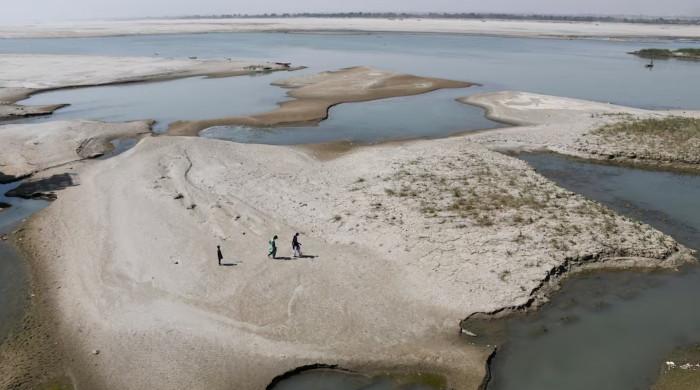In the light of the continuous hostility of India towards Pakistan, marked by repeated violations of bilateral and international obligations, it is imperative to examine recent developments on the Indo Water Treaty (IWT) and the strategic suspension of the Simla Agreement.
Both instruments are fundamental for the legal and geopolitical relationship between the two countries. According to international law, Pakistan’s position remains mainly, well founded and defensible.
The Treaty of the Water of the Indo, signed in 1960 by India and Pakistan with the World Bank as guarantor, is a binding international agreement. The treaty assigns the control of the Eastern rivers (Ravi, Beas, Sutlej) to India and grants Pakistan rights over the Western rivers (Indo, Jhelum, Chenab), subject to certain limitations. It is important to note that article XII of the Treaty explicitly establishes that “it will not be terminated, except for the agreement of both governments”, which makes any attempted unilateral withdrawal legally null and internationally unsustainable.
The treaty does not include any provision that allows unilateral withdrawal by any of the parties. The only legally allowed options are its continuation, or its amendment or termination through mutual consent. This shows a critical legal reality: although the treaty allows a negotiated reform, it unequivocally unilateralism.
Any Indian statement or action that suggests a unilateral output of the treaty has a direct violation of its express terms and the principles of international law.
This is not the first time that India threatens to interrupt or unilaterally abandon the Treaty of the Water of the Indo. On several occasions, Indian officials have made provocative statements regarding the diversion of water flows legally assigned to Pakistan, acts that Pakistan has legitimately hostile and equivalent to a declaration of war. In response, the National Security Committee (NSC) of Pakistan has constantly issued solid refutations based on evidence, characterizing movements as serious violations of international law and serious threats to regional peace and stability.
The NSC has reiterated Pakistan’s commitment to respond through legal, diplomatic and strategic channels in a way consisting of constitutional and international norms.
The continuous attempts of India to avoid or undermine the framework of the treaty clearly violate international legal obligations. Given the role of the World Bank as a third party guarantor, Pakistan has multiple routes available under international law to challenge India’s behavior, including the mechanisms for the resolution of incorporated disputes of the treaty, appeal to the International Court of Justice and other international arbitration forums.
Pakistan must adopt a proactive legal strategy to defend their water rights. This includes invoking the dispute resolution provisions in annexes F and G of the treaty, either by designating a neutral expert or initiating procedures before an arbitration court.
In view of the repeated infractions of India, Pakistan is also justified to involve the UN and ask the World Bank to guarantee adherence to the stipulations of the treaty.
As for the Simla Agreement of 1972, the recent suspension of the Pakistan agreement is legally justified and diplomatically strategic. For decades, India has misused the agreement to block international attention on the subject of Kashmir, insisting on exclusive bilateralism. However, the unilateral revocation of India of article 370 of its Constitution, its demographic engineering in Jammu & Cashmira occupied by India, and its continuous violations of human rights have caused the bilateral mechanism to disappear.
The suspension of the Simla Reactive Agreement The jurisdiction and relevance of the resolutions of the UN Security Council in Kashmir. These resolutions explicitly require a plebiscite to allow the people of Kashmir to determine their political future.
When suspending the agreement, Pakistan is no longer legally restricted to bilateral roads and can reinterlasticize the Kashmir dispute, firmly placing it on the global diplomatic and legal agenda.
The main reason for deterioration in Indo-Pak relations lies in the aggressive and destabilizing behavior of India, including false orchestrated flag operations, misinformation campaigns and terrorism sponsored by the state addressed to Pakistan. Incidents such as pulwama attack and Balakot’s air attacks, widely seen as politically motivated provocations, exemplify the belligerent approach of India for regional security.
The legal position of Pakistan in both the swing of the Indo’s waters and on the problem of Kashmiro is firmly based on international law. The international community, particularly the World Bank and the UN, must play a more active role in holding India. Meanwhile, Pakistan must continue his legal defense, strategic diplomacy and resistance of principles to safeguard his sovereignty and guarantee regional peace.
Pakistan is on a strong legal feet regarding the treaty of the Indo waters. The suspension of the Simla agreement represents not only a legal response but also a necessary strategic change. These steps demonstrate the firm resolution of Pakistan to face the growing hostilities of India with constitutional clarity, legal integrity and international legitimacy.
The writer is a defender in the exercise of the Pakistan Supreme Court with 25 years of legal position. You can contact: [email protected]
Discharge of responsibility: The views expressed in this piece are that of writer and do not necessarily reflect the editorial policy of PakGazette.TV.
Originally published in the news




